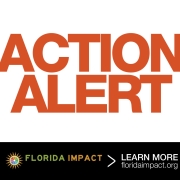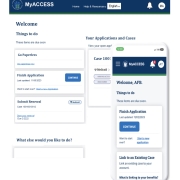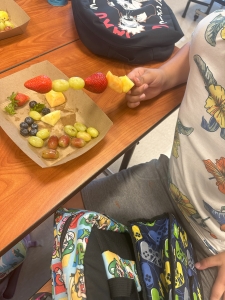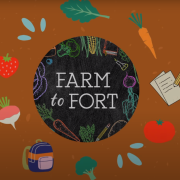Washington, D.C. – Congressman Kevin Mullin (CA-15) introduced the Poverty Line Act with support from fellow lawmakers and more than 40 organizations from across the country to modernize the way the federal poverty line (FPL) is calculated, which has not been updated in nearly 60 years.
The current method for calculating poverty line is out of step with what working families actually spend on housing, childcare, and healthcare, nor does it account for regional differences. This means that millions of struggling families make too little to afford their basic needs, yet because the federal poverty line is so low, they are not eligible for safety net benefits.
The Poverty Line Act would update the way the Federal government calculates the federal poverty line by accounting for real costs and adjusting for regional differences. This would make millions of more families eligible for safety net programs, including Medicaid, SNAP (food stamps), LIHEAP, and many more.
“Since the 1960’s we have gone into space, developed electric vehicles and no longer rely on landlines for our phone service. It’s long past time that we bring the federal poverty line into the 21st Century as well,” Mullin said. “With the holiday season upon us, non-profits hold food drives and toy drives to provide assistance, yet there are important federal programs that should be within reach for households who need assistance. Unfortunately, working families make too little to afford their basic needs, including housing, food, utilities, and more, yet because the federal poverty line is so low, they are not eligible for safety net benefits. It’s time for Congress to take action to address this critical national issue.”
The federal poverty line calculation has not been adjusted since the Johnson Administration, and consequently does not accurately reflect what it takes for a household to meet their basic needs regardless of where that household is located. The current poverty line calculation is tied a household’s food budget in the 1960s and adjusted for inflation. While significant, for most modern American households the cost of food has decreased as a share of expenses relative to other costs like housing, utilities, and more. There have also been numerous task forces created to study this problem over the past several decades, and the statistical measurement of poverty in the U.S. has changed periodically based on the findings of these studies. However, Congress has yet to take action to update the poverty line when it comes to eligibility for programs.
The Poverty Line Act has been endorsed by more than 40 organizations, including Children’s Defense Fund, Feeding America, Southern Poverty Law Center Action Fund, and United Way Worldwide, as well a range of state-based groups from across the U.S., including in Florida, Illinois, Massachusetts, Tennessee, and Texas. The full list of endorsements is below.
Specifically, the Poverty Line Act would:
- Replace the outdated federal poverty line so that, for the first time, it is regionally adjusted and more accurately reflects the cost of living, including housing, food, clothing, phone, internet, health care, and, for families with children, child care costs;
- Prevent any individual from losing eligibility for a program based on the new calculation methodology if they were eligible under the old one;
- Ensure the poverty line is no lower than it is today anywhere in the country;
- Require the Office of Management and Budget to report to Congress on how federal law should be updated to reflect the new calculation where, for example, program eligibility is based on a percentage of the old poverty line; and
- Ensure that the new methodology is reviewed at least once every four years to determine whether it is still reflective of what households need to meet their basic needs and to identify additional changes needed in the future.
A range of national and state-based organizations have made statements in support of the Poverty Line Act:
“The way America calculates poverty was originally developed in the 1960s, and for decades, the federal poverty line has not kept up with the rapid cost of living increases we continue to experience,” said Children’s Defense FundPresident and Chief Executive Officer Rev. Dr. Starsky Wilson. “Too many children and youth lack basic resources because their family’s income is just above America’s current poverty line. That is why Congress must pass the Poverty Line Act. It should be our leaders’ goal to prioritize the well-being of all young people in America, and that must include stability and economic mobility for families. This legislation would give our nation’s young people a chance to live with what they deserve: dignity, hope, and joy.”
“United Way Worldwide is proud to support the Poverty Line Act,” said Angela F. Williams, President and CEO of United Way Worldwide. “Every day the working poor struggle to maintain access to basic needs like housing, food, and utilities. Too often individuals are forced to make the difficult decision of whether to pay electric bills, buy groceries, or pick up medication. This bill helps to ensure people, especially working families who are struggling, have access to critical programs that provide the necessary short- and long-term support and stability they need. We are pleased to join Rep. Mullin and many others in this effort to modernize the formula for calculating the federal poverty line. This important policy solution complements United Way Worldwide’s efforts such as providing tax help, supporting 211 – the nation’s go-to three-digit line providing help to millions of people, and strengthening education, health, and economic mobility across 95% of communities in the U.S. to ensure that all people thrive.”
Bruce Lesley, President of First Focus Campaign for Children, said, “Nearly 9 million children are currently living in poverty in the United States, one of the richest countries in the world. Tens of millions more experience significant material hardship even though their family income sits above the poverty line. Federal poverty guidelines have fallen behind reality and leave too many families struggling to keep food on the table, warm their homes, access health care and otherwise keep their children safe and secure. We applaud Rep. Mullin and the other cosponsors for their leadership in introducing the Federal Poverty Line Act, which would align federal poverty guidelines with our children’s actual needs, so that they not only survive, but thrive.”
“Millions of people make too little to make ends meet in today’s economy,” said Audra Wilson, President and CEO of the Shriver Center on Poverty Law. “Rising costs for housing and food hold back working families from meeting basic needs, let alone getting ahead. That’s why we support Congressman Mullin’s efforts to update federal poverty guidelines and increase access to critical benefits and safety net programs. A future where everyone can thrive is a future worth fighting for.”
“The federal poverty measure has been outdated for decades, preventing many needy families from accessing critical benefits,” said Celia Cole, CEO of Feeding Texas, the state association of food banks. “Food banks witness this regularly when people unable to meet basic needs show up in our lines, but do not qualify for federal assistance programs like SNAP. As the cost of essentials like housing, healthcare, and food continue to increase, we need a formula that more accurately captures the true cost of living in the U.S. and takes into account regional differences. Every person deserves to live with dignity, be able to put food on the table and pay the rent, and save for a better future — updating the federal poverty measure is a step in the right direction.”
“Florida Impact supports Rep. Mullin’s Poverty Line Act,” said Kim M. Johnson, President and CEO of Florida Impact to End Hunger. “Expanding the FPL is not just a policy change, it’s a deep commitment to helping families move beyond poverty. In our efforts to assist individuals in accessing federal nutrition programs statewide, we witness the daily struggles of hardworking people striving to provide for their families. It’s disheartening that individuals are forced to make hard choices between essentials such as food, rent, and medicine. No one should have to make that choice. By recognizing the true extent of financial struggles that many face, we are taking important steps to ensure that families on the margins receive the support they need.”
“The Poverty Line Act will help millions of Americans by increasing access to basic needs such as food, housing and health care. The community members Peninsula Family Service supports will greatly benefit from this Act as they strive to lead healthy, stable lives,” said Heather Cleary, Chief Executive Officer of Peninsula Family Service in San Mateo, California.
“The current federal poverty limit doesn’t take into account cost of living data, which makes it seem that places like Silicon Valley have very little need when, in fact, the number of people in the region who are struggling to make ends meet is very high,” said Leslie Bacho, CEO of Second Harvest of Silicon Valley. “Second Harvest of Silicon Valley provides food to 500,000 people every month — the equivalent of 1 in 6 people in our two counties. The adjustment to include cost-of-living data in the federal poverty limit would provide greater access to vital government benefits for our community’s residents and would bring more understanding and awareness about the level of need in our community.”
“Samaritan House works every day to fight poverty in San Mateo County, and we know this is not just a local issue, but an issue nationwide,” said Laura Bent, Chief Executive Officer of Samaritan House in San Mateo, California.“Modernizing the formula that is used to calculate the national poverty level would make a huge difference in the lives of our clients and we are grateful that Congressman Mullin is addressing this issue at the national level.”
The Poverty Line Act is co-sponsored by Representatives Jesús “Chuy” García (IL-04), Robert Garcia (CA-42), Jimmy Gomez (CA-34), Al Green (TX-09), Raja Krishnamoorthi (IL-08), Barbara Lee (CA-12), Zoe Lofgren (CA-18), Eleanor Holmes Norton (DC-At large), Delia Ramirez (IL-03), Jan Schakowsky (IL-09), Shri Thanedar (MI-13), Rashida Tlaib (MI-12), and Bonnie Watson Coleman (NJ-12).
The bill has been endorsed by (in alphabetical order): Alliance for a Just Society, California Association of Food Banks, Cambridge Economic Opportunity Committee, Child Welfare League of America, Children’s Defense Fund, Community Change Action, Covenant House International and Covenant House California, Economic Security Project Action, End Child Poverty in California (GRACE), End Poverty in California, Federation of Protestant Welfare Agencies, Feeding America, Feeding Texas, First Focus Campaign for Children, Florida Impact to End Hunger, Illinois Hunger Coalition, Institute on Race, Power, and Political Economy (The New School), Liberation in a Generation, Los Angeles Regional Food Bank, Massachusetts Law Reform Institute, National Alliance to End Homelessness, National Association for State Community Services Programs, National Association of Social Workers, National Coalition for Asian Pacific American Community Development, National Education Association, National Employment Law Project , National Network for Youth, NETWORK Lobby for Catholic Social Justice, Peninsula Family Service, PolicyLink, Samaritan House, SchoolHouse Connection, Second Harvest of Silicon Valley Food Bank, Service Employees International Union (SEIU), Shriver Center on Poverty Law, Sojourners-SojoAction, Southern Poverty Law Center Action Fund, Tennessee Justice Center, UnidosUS, United Way Worldwide, and Western Center on Law & Poverty.
A copy of the bill text can be found here.
December 6, 2023
Media Contact:
(DO) Susan Kennedy (650) 288-2019 or Susan.Kennedy@mail.house.gov
(DC) Luisa Gunn (202) 704-5030 or Luisa.Gunn@mail.house.gov





 This program teaches elementary school students how to eat healthy and live well. During this session, we focused on healthy snacking and taught students how to make Rainbow Fruit Kabobs.
This program teaches elementary school students how to eat healthy and live well. During this session, we focused on healthy snacking and taught students how to make Rainbow Fruit Kabobs.





